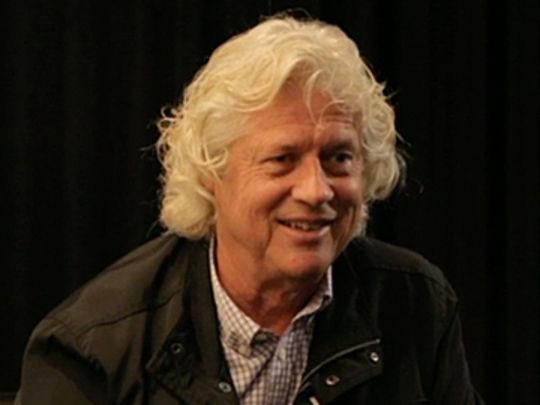
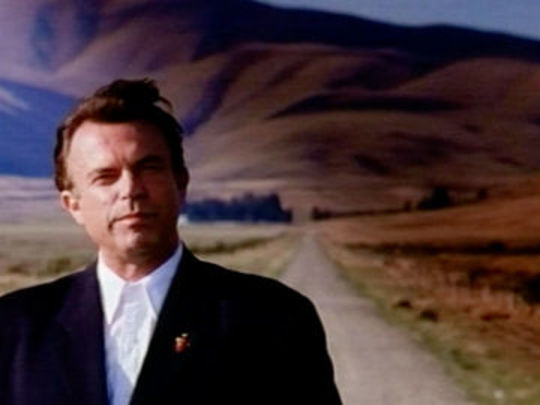


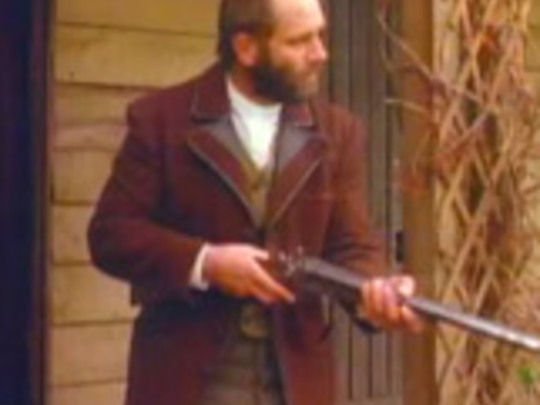
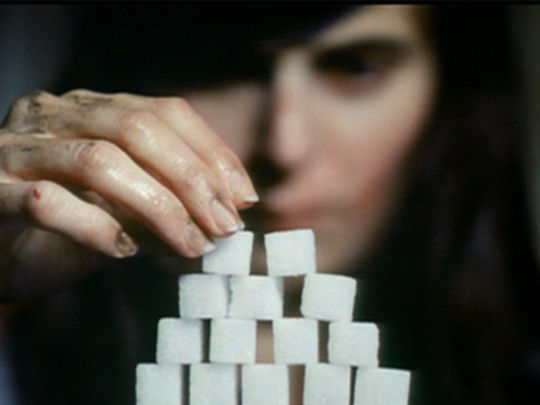
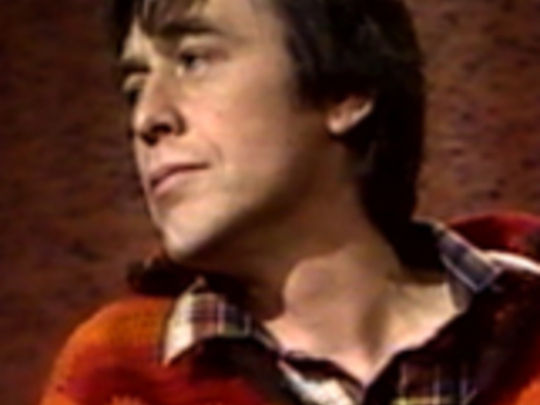
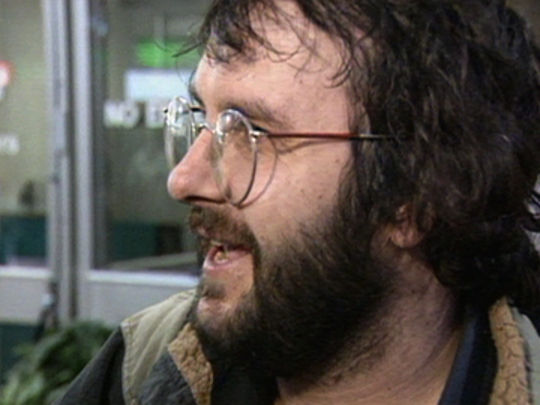
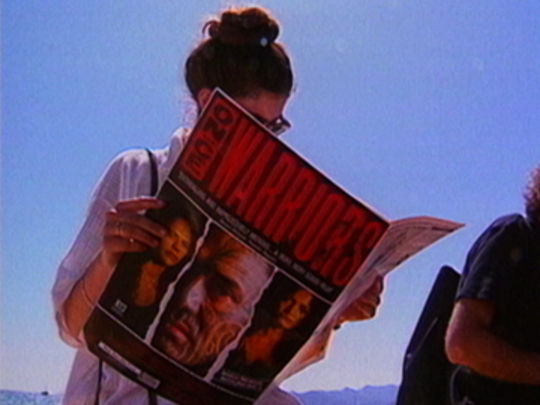
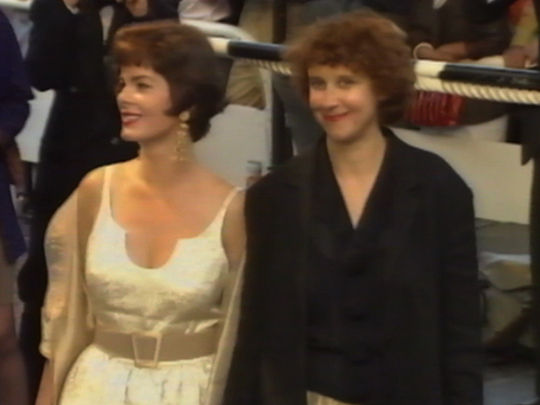
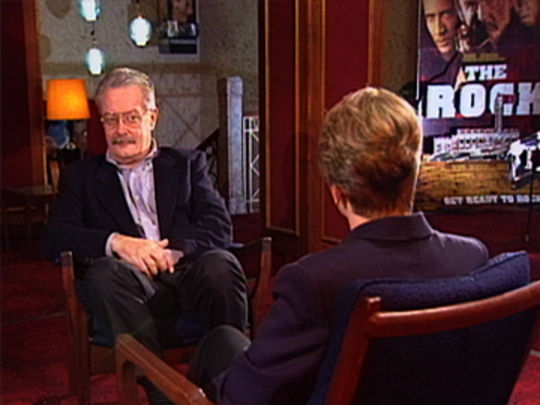

The NZ Film Commission turns 40
The NZ Film Commission turns 40
This collection has two backgrounds:
The Funny Little Hovel
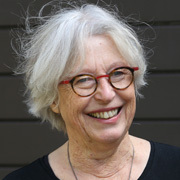
40 Years and More

The Funny Little Hovel
By Gaylene Preston 31 May 2018
It was in May 1977, when I began working at Pacific Films in Wellington, that I became aware there was agitation to set up a Film Commission in New Zealand. John O’Shea and Bill Sheat, no doubt with others, spent some time up at Bellamy's and hours at the unofficial Beehive restaurant — The Green Parrot — educating Allan Highet, the National Party Minister of Culture, on the economic delights of a local film industry. No doubt his wife, leading painter Shona McFarlane, was also on the case after Highet got home. He was a marked man.
Certain local ruffians agitated (they know who they are). John Reid was commissioned to write a report (imaginatively called ‘The Reid Report’) and finally with Dagg Day Afternoon and Sleeping Dogs already in cinemas, the Government passed the NZ Film Commission Act. Clearly focussed on attracting foreign exchange, the act did not mention anything about telling New Zealand stories by New Zealanders, for New Zealanders (it still doesn’t). Far too risky. You’d never get that through the House. The money pitch worked.
The Interim NZ Film Commission was set up with Don 'Scrubbs' Blakeney, a merchant banker who had done catering on Sleeping Dogs, as the first CEO. He chose Kerry Robins to assist and Kerry's sister Veronica Lawrence to run the office. She organised every phone call they made and typed their letters.
They had a funny little hovel round the back of the Opera House. Internal Affairs provided a car that Vincent Ward immediately ‘borrowed’ for a very long time when he went up Tuhoe Country with Albol to shoot In Spring One Plants Alone. I liked going up the mouldering marble staircase in the Courtenay Place foyer, and out the back through a rabbit warren of tiny corridors with unexplained corners. It felt like a metaphor for filmmaking. Veronica could type your letters without mistakes on the only electric typewriter I had access to.
It was fun. It was quietly subversive. It was going to tell New Zealand stories or die in the doing!
The beginning of things is always fun. It wasn’t long before they moved to a sunny office in a more acceptable part of town and they stopped being interim and became the official Film Commission, and we finally had something to blame! The rest, as they say – is history. Thank you for being there NZ Film Commission.
- Arts Foundation Laureate Gaylene Preston has directed six features, from Mr Wrong to documentary My Year with Helen. All of them had partial funding from the NZ Film Commission.
40 Years and More
By John Barnett 31 May 2018
If you are in your mid 50s (!) or younger, and interested in New Zealand films, the NZ Film Commission has always been a key component in the story.
I say mid 50s, because in 1977, before there was a Film Commission, you would have been in your teens, and you might have been conscious of the fact that six New Zealand films had played recently in cinemas. You may have even gone to see Sleeping Dogs, Solo or Wild Man, with its short film Dagg Day Afternoon starring Fred Dagg, or New Zealand’s first Oscar-nominated feature Off the Edge.
These films were made before there was a Film Commission; they were part of the impetus that created it. And it’s important to mark the people, and events which led to its creation.
It’s hard to imagine that there was a time when New Zealand music, plays, books, films and art in general were regarded as fringe activities. 'Culture' came from Britain, or the United States — it wasn’t from here. But post WWll, a New Zealand voice began to emerge and more importantly it attracted a following — small at first, but increasingly gaining acceptance.
In the film sector, John O’Shea at Pacific Films was determined to create an independent New Zealand film industry. He made feature films when there was no funding, he made documentaries when the NZ Broadcasting Corporation — the only TV channel — was reluctant to play them. And he employed a bunch of people who were almost as passionate as he was, and they went on to make their own mark and play an important part in the story.
For most 'would be' filmmakers at the time, it wasn’t a business. They could dream of what it might be, but the reality was that there was no industry, no funding and a very small audience. But in Auckland and in Wellington, determined individuals got together and made films. And their efforts attracted publicity, audiences, and attention.
Working with the filmmakers, Bill Sheat, a Wellington lawyer with connections to the government, encouraged the Minister of Internal Affairs Alan Highet to set up a New Zealand Film Commission. There was no Ministry for Culture and Heritage — Internal Affairs ran Lotteries — which provided the funding for the Film Commission and still does, 40 years on. It also ran Racing and Civil Defence.
Alan Highet was married to Shona McFarlane, who was an artist, journalist and advocate for New Zealand culture. And one of Alan's friends ran 20th Century Fox USA. So Alan was predisposed to a New Zealand film funding body, and under his aegis the NZ Film Commission was established.
In a very short time the NZ Film Commission, with a tiny staff, had backed half a dozen features. When Goodbye Pork Pie attracted great audiences and Smash Palace won local and international acclaim, the NZ Film Commission had justified its establishment, and a New Zealand film industry looked like it could become a reality.
The Film Commission was a government entity – but it was clearly willing and able to back the anarchy of Pork Pie, the social issues of Smash Palace, and to allow filmmakers to question government and judiciary with Beyond Reasonable Doubt. It’s a tribute to those who sat on its board, and those who ran it, that they showed independence and willingness to support what was then ‘new talent’ and unconventional ideas.
And that approach has been evident throughout its whole 40 years. The ‘Commish’ has supported films which question the world in which we live, it has supported stories which challenge the status quo, which champion diversity — gender, ethnicity, age. It has enabled the creators of projects to express their take on an extremely wide range of subjects. It has championed diversity in front of, and behind the camera.
Eight of the Top 10 NZ titles are Māori or Polynesian stories. No one else in the world is going to tell these stories — and the NZ Film Commission have enabled their production, and then watched as an audience has emerged and now eagerly anticipate more of these films.
Looking back over 40 years I often reflect that in order to keep the politicians happy, and more importantly to keep New Zealand audiences believing in local films, it isn’t necessary for every film to be a hit. In fact a really popular film every couple of years results in Kiwi commentators and audiences feeling proud of the industry.
The Film Commission’s remit is to create New Zealand films, stories about us, by us, and primarily for us. But along the way, Commission support has started careers which have taken New Zealand films and filmmakers into the cinemas and living rooms and social media chatter of the world. Peter Jackson and Taika Waititi got their start with Film Commission backing.
New Zealand names are established and accepted throughout the international industry — writers, directors, producers, cast and crew. And their beginnings were on Film Commission-backed films.
Of course, there have been times when filmmakers have complained about the structure or the board or the staff. One famous older film identity still refers to "those bastards at the Commission", regardless of whether he is talking about today’s team, or the people he felt slighted by 35 years ago. That’s part of the give and take — there will always be rejections, there will always be creatives who disagree with the rulings and assessments from the Film Commission.
But there is no doubt that the NZ Film Commission is a damn good idea, and that it is very robust, and that the regular turnover of board appointees, Chief Executives and staff ensures that it maintains its relevance and role, and its importance in the ecology of New Zealand films.
May its next 40 years be as productive and successful as the first 40.
- John Barnett's list of producing credits includes Beyond Reasonable Doubt, Whale Rider, Sione's Wedding and TV's Outrageous Fortune. He was the Chief Executive of South Pacific Pictures for almost 20 years.